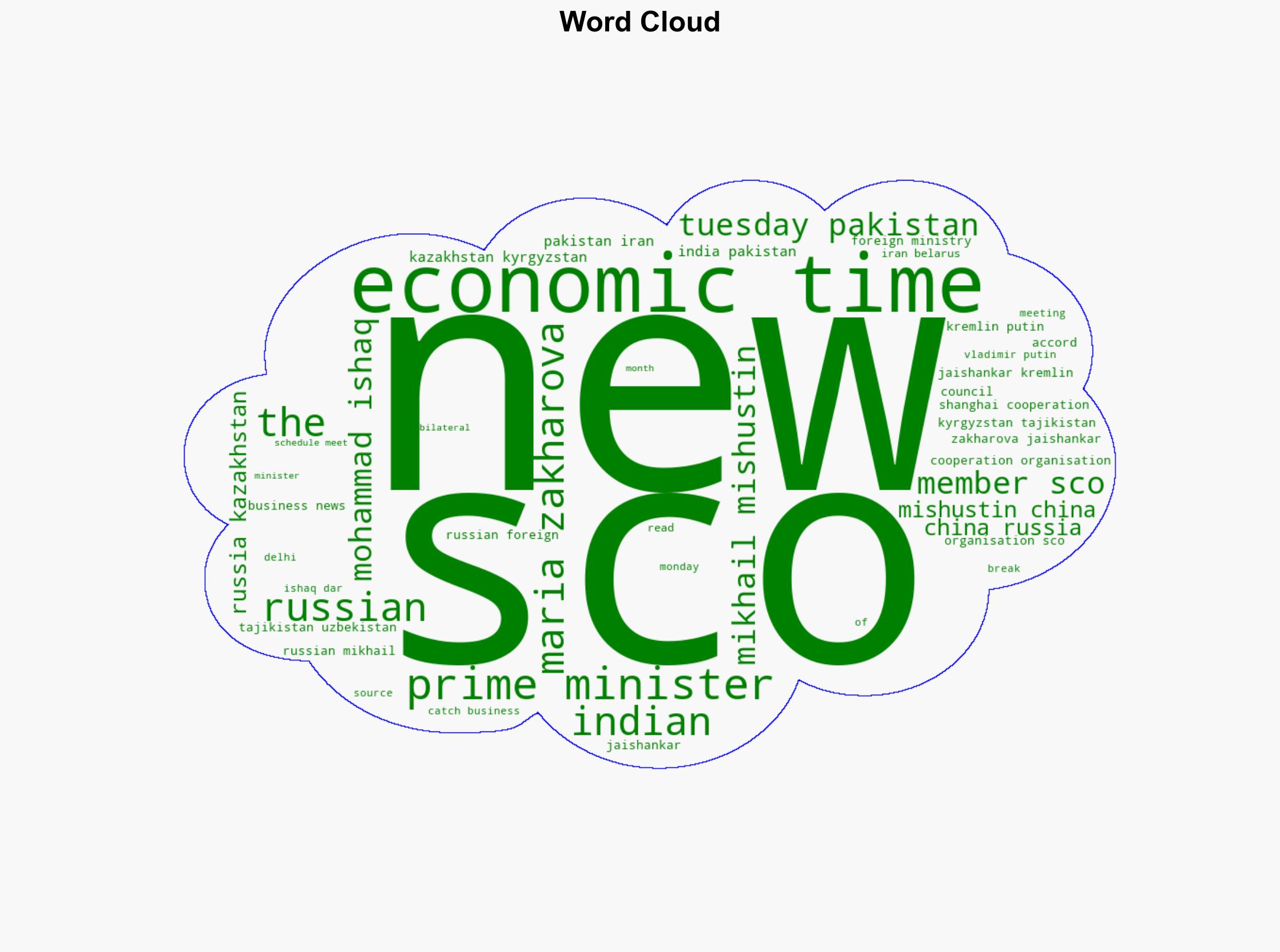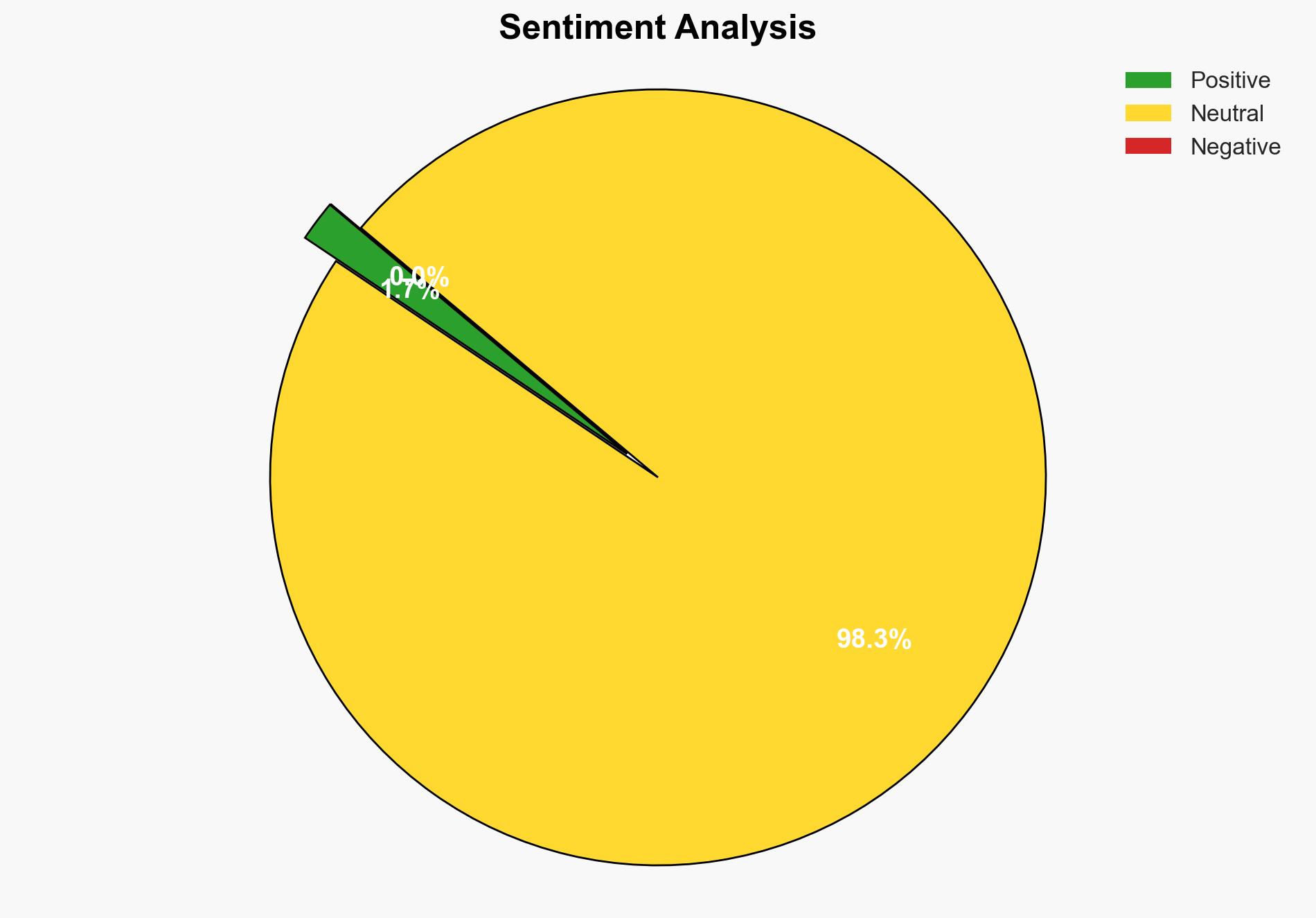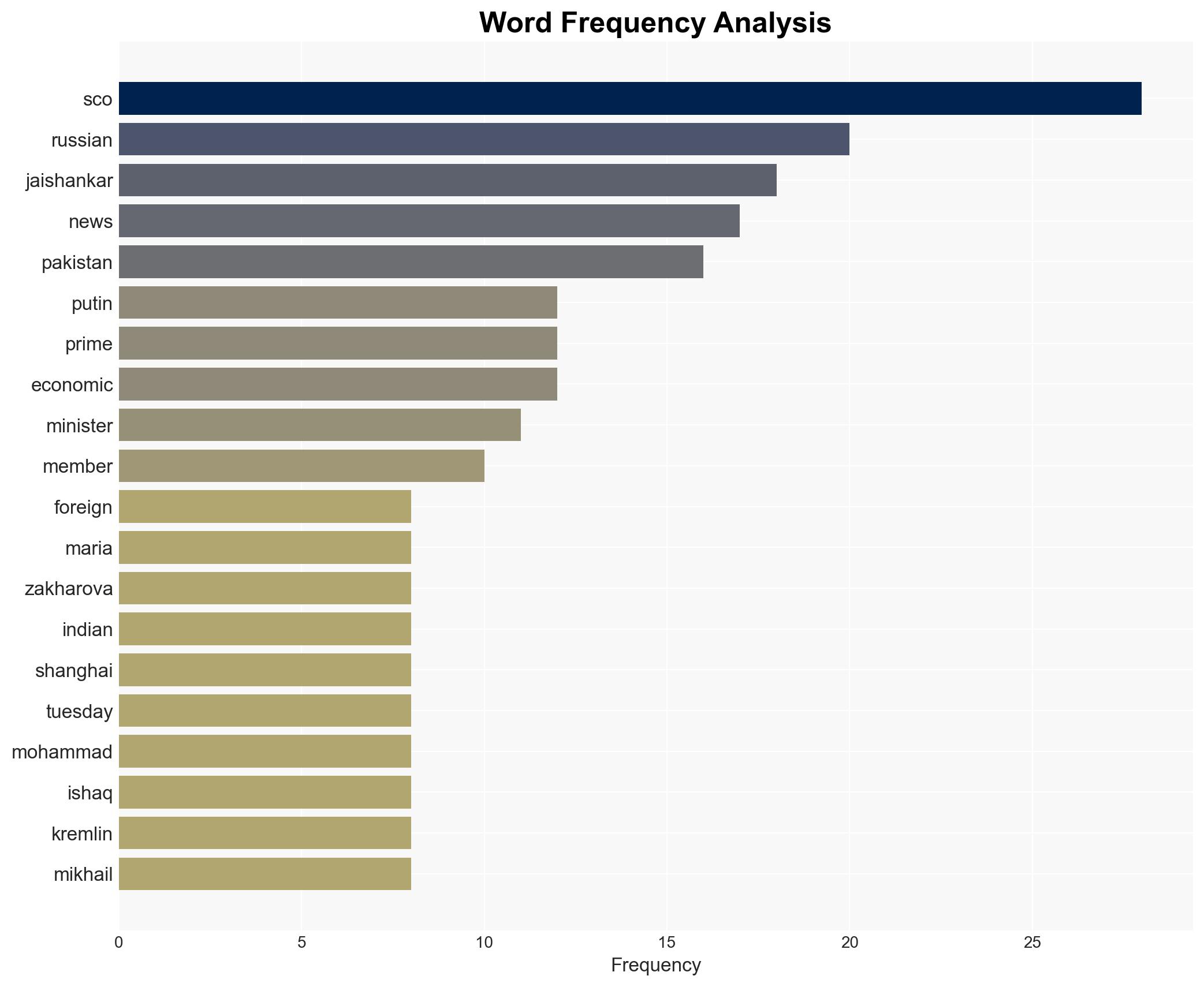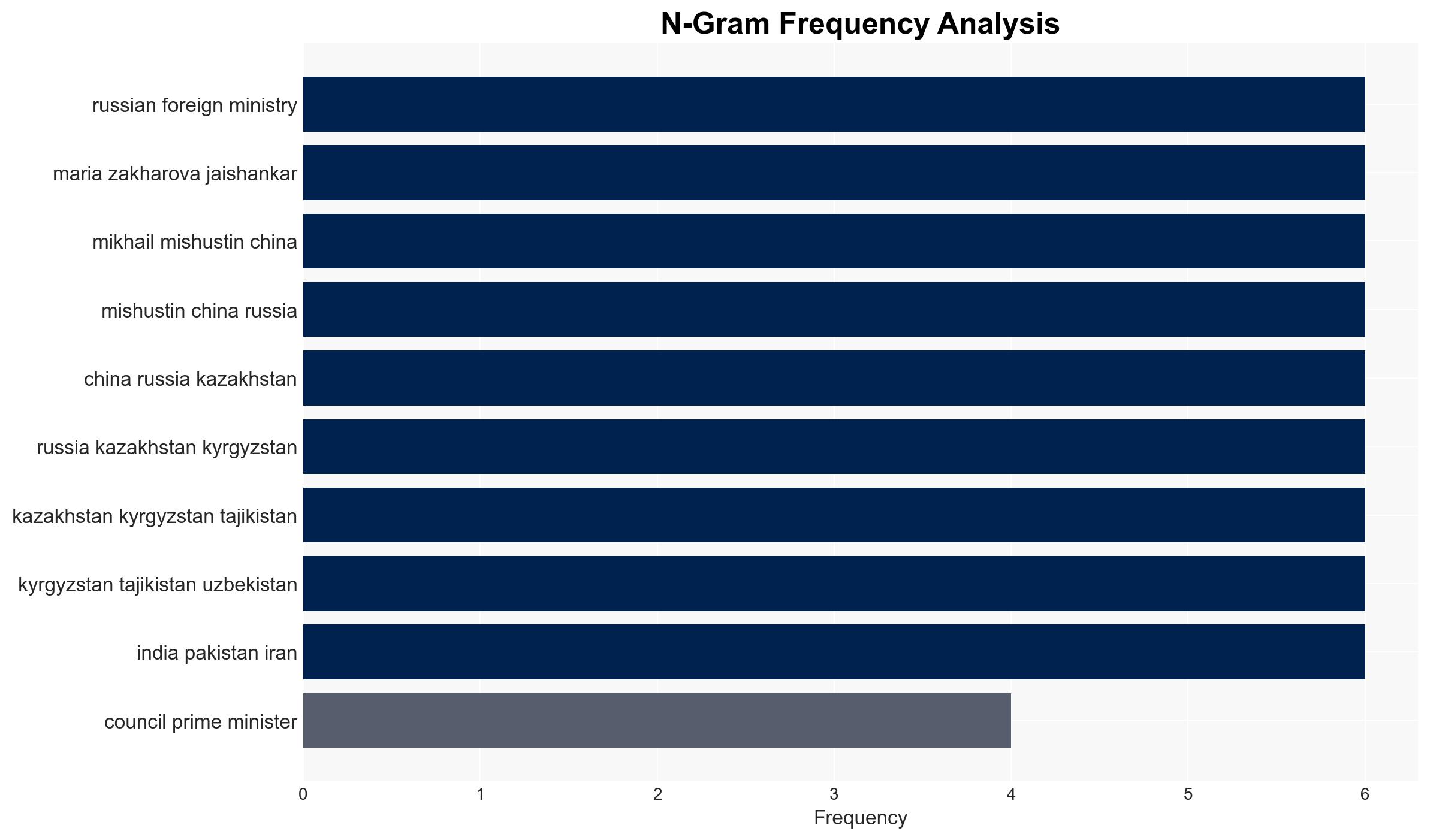EAM Jaishankar to meet Russian counterpart Lavrov on Monday to discuss bilateral ties – The Times of India
Published on: 2025-11-16
AI-powered OSINT brief from verified open sources. Automated NLP signal extraction with human verification. See our Methodology and Why WorldWideWatchers.
Intelligence Report:
1. BLUF (Bottom Line Up Front)
The meeting between Indian External Affairs Minister S. Jaishankar and Russian Foreign Minister Sergei Lavrov is likely aimed at strengthening bilateral ties and coordinating positions ahead of the Shanghai Cooperation Organisation (SCO) summit. Given the geopolitical context, this meeting is strategically significant for both nations. The most supported hypothesis is that India seeks to balance its relationships with major powers while Russia aims to consolidate its influence in Asia. Confidence Level: Moderate.
2. Competing Hypotheses
Hypothesis 1: India and Russia are primarily focused on enhancing bilateral trade and defense cooperation, using the SCO as a platform to solidify their partnership.
Hypothesis 2: The meeting is a strategic maneuver by both countries to align their positions on regional security issues, particularly concerning China and the broader Indo-Pacific region.
Hypothesis 1 is more likely due to the historical context of India-Russia relations, which have traditionally emphasized defense and trade. However, Hypothesis 2 cannot be discounted given the current geopolitical tensions involving China.
3. Key Assumptions and Red Flags
Assumptions:
– India and Russia have mutual interests that outweigh their differences.
– The SCO provides a neutral platform for strategic dialogue.
Red Flags:
– Potential bias in sources from Russian and Indian media.
– Lack of transparency in the specific agenda of the meeting.
Deception Indicators:
– Public statements may not fully reflect the private discussions, especially on sensitive security issues.
4. Implications and Strategic Risks
Political: Strengthened India-Russia ties could complicate India’s relations with Western allies, particularly the US.
Economic: Enhanced trade agreements could impact regional economic dynamics, potentially affecting China’s economic influence.
Cyber and Informational: Increased cooperation might include cybersecurity measures, impacting regional cyber strategies.
5. Recommendations and Outlook
- Actionable Steps: India should maintain transparency with its Western allies to mitigate any diplomatic fallout. Additionally, exploring trilateral dialogues involving Russia and other regional powers could be beneficial.
- Best Scenario: Strengthened India-Russia ties lead to enhanced regional stability and economic growth.
- Worst Scenario: Increased tensions with Western allies, leading to diplomatic isolation.
- Most-likely Scenario: Incremental improvements in bilateral relations with cautious engagement on broader regional issues.
6. Key Individuals and Entities
S. Jaishankar, Sergei Lavrov, Vladimir Putin, Maria Zakharova, Mohammad Ishaq Dar.
7. Thematic Tags
Regional Focus, Regional Focus: South Asia, Central Asia, Russia
Structured Analytic Techniques Applied
- Causal Layered Analysis (CLA): Analyze events across surface happenings, systems, worldviews, and myths.
- Cross-Impact Simulation: Model ripple effects across neighboring states, conflicts, or economic dependencies.
- Scenario Generation: Explore divergent futures under varying assumptions to identify plausible paths.
Explore more:
Regional Focus Briefs ·
Daily Summary ·
Support us
·





